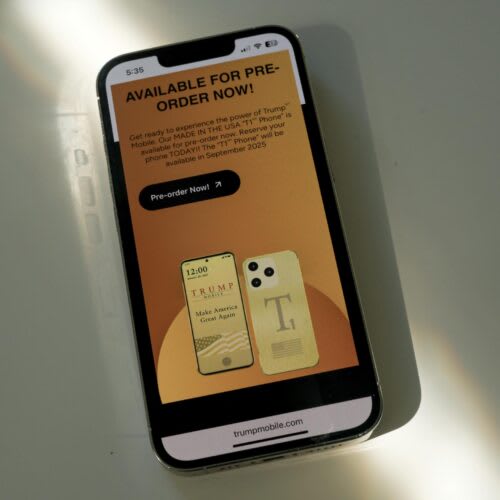The Illusion of "Made in the USA": Trump's Mobile Phone Controversy
 The Tech Times
The Tech Times
In a world where brand names and slogans carry immense weight, the phrase "Made in the USA" evokes a sense of patriotism and quality for many Americans. It speaks to a tradition of domestic craftsmanship and supports the national economy. However, the recent debacle with Trump Mobile's T1 phone has reignited discussions about the authenticity of such claims in the technology sector.
A Brief Overview
Trump Mobile, a new entrant into the smartphone market, made waves when it initially advertised its T1 model as being "made in the USA." However, within just a week of its launch, the company quietly retracted this claim. Instead, it now markets the phone as "designed with American values," without specifying the manufacturing location. This shift has left consumers wondering about the transparency of such marketing strategies and the true origins of their devices.
Historical Context
The concept of manufacturing in America has been a contentious issue for decades. In the 1980s, as globalization took hold, many American companies began outsourcing production to countries with cheaper labor costs to remain competitive. This shift led to a decline in manufacturing jobs within the U.S., sparking debates about economic patriotism and the importance of domestic production.
In the tech industry, this issue is particularly pronounced. Giants like Apple, for instance, design their products in California but manufacture them overseas, primarily in China. This model has become the industry standard, as it allows companies to balance quality with cost efficiency. However, it also means that the "Made in the USA" label is often more about design and brand ethos than actual production.
Analyzing the Trump Mobile Situation
Trump Mobile's initial claim that the T1 was "made in the USA" was likely an attempt to capitalize on nationalistic sentiments and distinguish itself from competitors. However, the quick retraction suggests a possible oversight or miscommunication within the company. Alternatively, it could point to a strategic decision to avoid potential legal challenges or backlash from consumer advocacy groups.
By pivoting to emphasize "American values," Trump Mobile is tapping into a different kind of marketing strategy. This phrase is ambiguous enough to resonate with consumers without making specific claims about manufacturing. It suggests a focus on design, innovation, and perhaps even business practices aligned with American ideals.
Implications for Consumers
For consumers, this situation underscores the importance of critical thinking and due diligence when it comes to marketing claims. As globalization continues to blur the lines of production and design, buyers must look beyond surface-level slogans to understand the full story behind their products.
Moreover, this incident highlights the complex interplay between marketing, consumer perception, and corporate responsibility. Companies must navigate these waters carefully, as misleading claims can quickly erode trust and brand credibility.
Conclusion
The Trump Mobile controversy serves as a reminder that in today's interconnected world, the definitions of "made" and "designed" are far from straightforward. As consumers, it is crucial to demand transparency and hold companies accountable for their claims. Meanwhile, brands must strive for honesty and clarity in their messaging to maintain consumer trust.
In the end, "American values" in technology may be less about where a product is manufactured and more about the principles guiding its creation and distribution. As the debate continues, one thing is clear: the label "Made in the USA" will remain a powerful yet contentious element of American consumer culture.
Source: After a week, Trump Mobile drops claim that Trump phone is “made in the USA”
Subscribe to my newsletter
Read articles from The Tech Times directly inside your inbox. Subscribe to the newsletter, and don't miss out.
Written by
